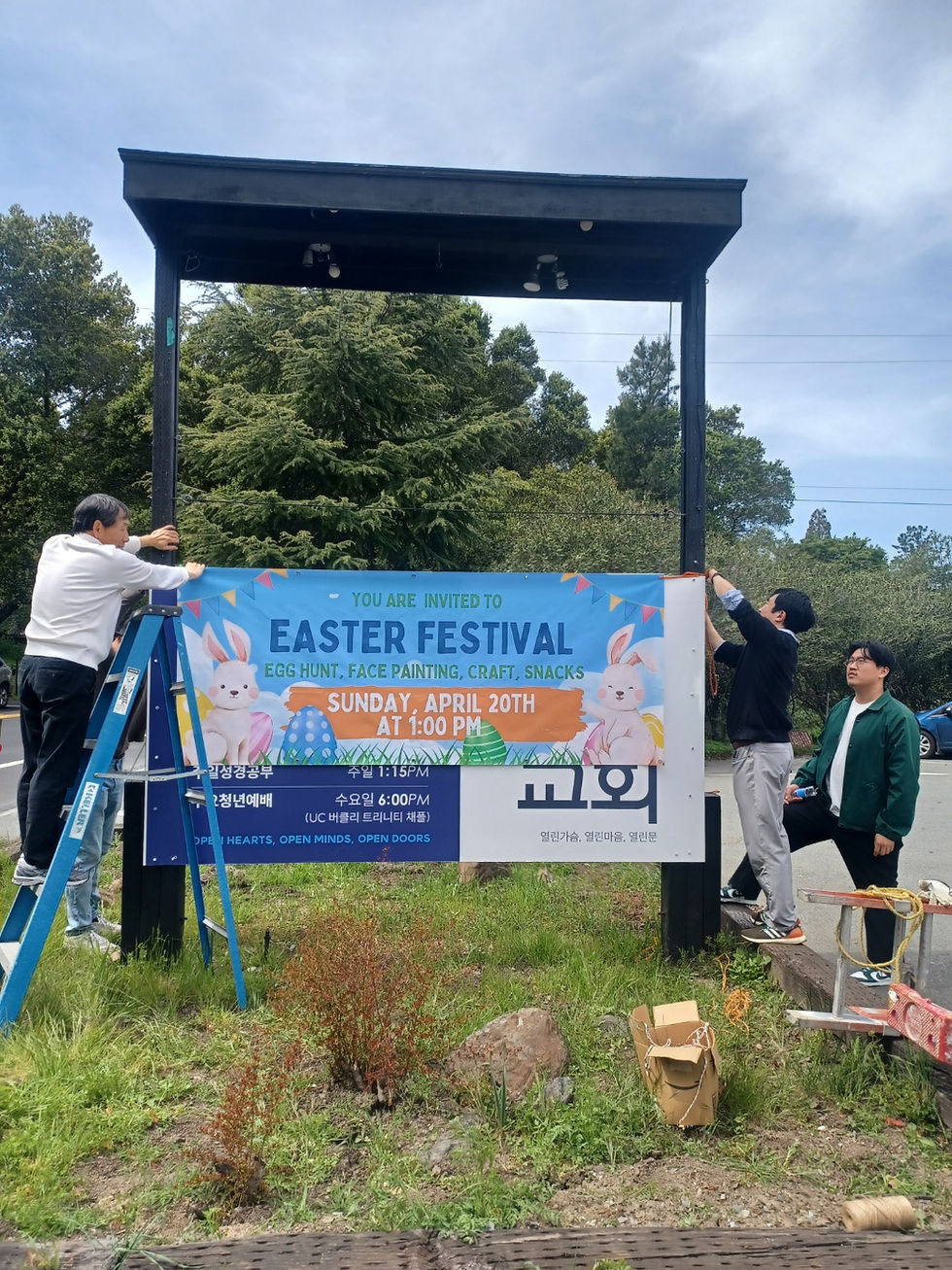Numbers 5:1–10, Wednesday, March 26, 2025
- 열린교회BKUMC
- 3월 26일
- 3분 분량

“Tell the Israelites: When a man or woman wrongs another in any way and so is unfaithful to the Lord, that person is guilty and must confess the sin they have committed. They must make full restitution for the wrong they have done, add a fifth of the value to it, and give it all to the person they have wronged.”(Numbers 5:5–7)
The English title Numbers may lead us to expect a book full of census data and calculations, but the Hebrew name of this book, Ba-Midbar—which means “In the Wilderness”—reveals its deeper purpose. It is not just about numbers, but about life in the wilderness: how to live, how to survive, and how to walk together in a community that honors God.
As the Israelites journeyed through the desert after the Exodus, they faced countless challenges. They were no longer under Egyptian law, and so they needed a new foundation—one built on divine principles, community values, and clear order. In a place where survival required unity, the law served not as mere regulation but as a guide to peace.
Today’s passage gives us a glimpse into one of those foundational principles: when someone commits a wrong, they are to confess it and make restitution—not only paying back what was taken, but adding a fifth more. It’s a simple rule, yet profound in its implications. It teaches us that peace in community begins with personal responsibility, humility, and tangible restoration.
Through principles like these, the Israelites were able to live with order and dignity, even in the harshest conditions. The book of Numbers records not only the events of the wilderness, but also the wisdom that allowed a people to live well, even as they wandered.
This morning, my heart is also with our homeland. South Korea is facing a devastating wildfire that has spread rapidly—crossing Mount Jiri, reaching from Sancheong all the way to Andong. That’s a considerable distance, and the fire seems to be spreading in all directions.
I received an urgent prayer request this morning: Deacon Jang Tae-wook’s mother-in-law and Deacon Ha Jeong-rim’s mother are currently in Andong, near the heart of the fire, and are unable to evacuate. The situation is serious, and they need our prayers.
News reports say that the fire was caused by human negligence—a careless act that is now resulting in what may become one of the largest wildfire disasters in Korean history. While justice may be served through law, we grieve for the irreversible damage: the lost forests, the burned homes, the families displaced.
The Israelites in the wilderness surely faced moments like this—moments when a single action could bring harm to the many. That is why they needed laws, not just to punish, but to preserve life. Moses' laws were not just spiritual—they were deeply practical. And through them, Israel was guided safely toward the land God had promised.
Today, as we reflect on these ancient principles, let us also turn our hearts in prayer for those suffering right now.
Meditation
Can perfect order ever be achieved simply by following the law? Or does it require something deeper—humility, confession, and a heart willing to restore?
Intercessory Prayers
For the wildfires in Korea to be extinguished swiftly and safely.
For the safety and protection of Deacon Ha Jeong-rim’s mother and Deacon Jang Tae-wook’s mother-in-law in Andong.
For our church’s children’s ministry, Pastor Jin Hee-won, and all the parents supporting the next generation in faith.



Comments